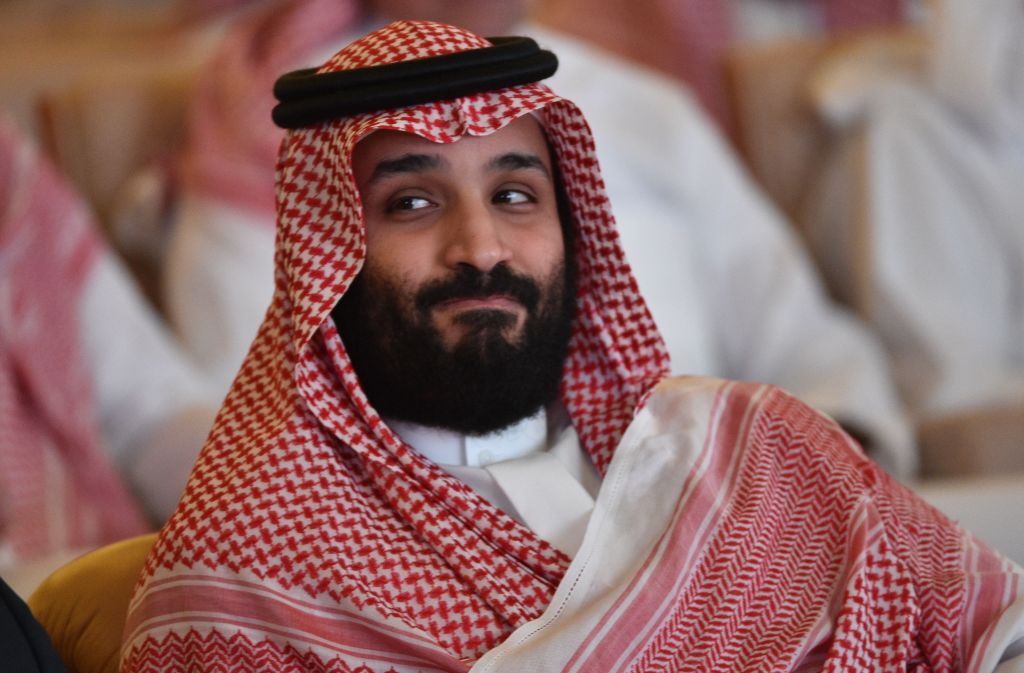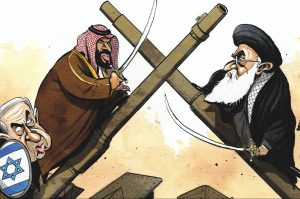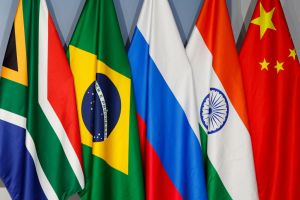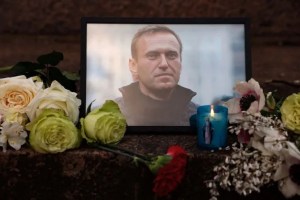There’s a joke, not terribly politically correct, about a very rich man called Costas who complains he has employed thousands of people, built hospitals and schools, but is still not respected. ‘Do they call me Costas the provider of opportunity? Do they call me Costas the healer? Do they call me Costas the educator? No.’ Then he adds a sad addendum. ‘But you make love to just one goat…’
Saudi Arabia’s de facto ruler Mohammed bin Salman, or MBS, must understand how Costas felt. Until the start of this month he was lionised throughout the West for his efforts to modernise his kingdom in order to attract the multi-trillion dollar foreign investment it needs to prevent it from going bankrupt. But will he now be remembered as ‘Mohammed the great reformer?’ No chance. You have just one writer for the Washington Post tortured to death…
There is something bleakly comic about Saudi Arabia’s approach to modernisation and engagement with the civilised world. In 2014, the kingdom’s government paid a vast sum to consultants McKinsey to come up with a plan to stop it going broke. Subsequently, it expended many millions more on a global PR campaign intended to showcase itself as a progressive and dynamic centre of commerce ripe for investment. The gist was the international financial community should ignore the beheadings in Riyadh’s Chop Chop Square or the genocide being committed in Yemen, and think instead about the vast, untapped potential of Saudi’s tourism and mining sectors. But now this. Surely McKinsey cannot have suggested a good way to get the Davos crowd onboard would be to pull a man’s fingers out – while he was alive, if reports are correct – and then lie idiotically about it.
With their infamous bone saw, Khashoggi’s murderers have done far more damage than they know. They have hacked through an artery intended to carry much needed foreign investment worth billions and billions of dollars into Saudi Arabia. Long-term, the effects will be bad.
Just look at the names that are rightly now rushing to distance themselves from investing in Saudi. The CEOs of Blackrock, JPMorgan, HSBC, Siemens, Virgin and Uber are just a few of the high level decision makers now not attending this week’s Future Investment Initiative conference in Riyadh, or ‘Davos in the Desert’ as it has come to be known. US Treasury Secretary Steven Mnuchin has also said he won’t attend. This isn’t how the McKinsey plan was meant to unfold. Angering all of the West’s most powerful investors at once is an unmitigated disaster for the House of Saud.
We have grown used in the West to the notion that Saudi is bottomlessly wealthy, able to buy itself out of international scrutiny by signing off massive deals for Western-made fighter jets and munitions, but that is no longer the case. The kingdom faces very pressing problems of its own, which is why it has lately been trying to play nice with the world’s money men. Its desire for international investment isn’t a lark. It knows, thanks to large-scale shale-oil production in the West and the imminent electric vehicle revolution, that it won’t be able to rely on oil revenues forever. It also knows that with more than 30 percent of its population aged under 15 (and only four percent aged over 65), job creation has to occur on a scale and with a speed that is unprecedented. But besides oil, its only other export is dates. Saudi Arabia makes nothing. Today more than 90 percent of its workforce is employed by the public sector. The government can’t create the jobs it needs without massive corporate investment.
To keep pace with the infrastructure requirements of its burgeoning population – Saudi’s birthrate until 1985 was seven children per woman – by its own admission the kingdom needs the oil price to be higher than $84 a barrel. Anything less and it loses very large amounts of money. But oil hasn’t been priced at $84 a barrel for four years. ‘They need us more than we need them,’ Republican senator Lindsey Graham said last week, and he’s got a point. Yes, Saudi can threaten the West by flirting with China, but does it really want to commit to that relationship by getting out of the relationship it has for so long enjoyed with America? Junking the Mutual Defence Assistance treaty (or oil-for-protection, as it is more commonly known), in place with the United States since 1951, to get into bed with the Chinese or the Russians would be quite a statement. One wonders what approach the Chinese would take to the endlessly complicated politics of the region. Would they, for example, be more patient than America and Europe have historically been should the oil price not be what they had hoped? Or would they act rather more decisively?
It’s hard to see now what MBS does next. The great unwritten rule of being a despot is always to maintain some degree of deniability, no matter how ludicrous. Never let the awful thing be directly pinned on you, even if the world knows you are responsible for the awful thing. But with the Khashoggi murder there’s no longer any deniability. There are recordings of everything, apparently even of MBS himself speaking to Khashoggi on the telephone shortly before the torture began. Because all explanations so far offered up by the Saudis are ridiculous, the humiliation, with each new revelation, grows greater and yet greater. Humiliation piled upon humiliation at a time when the kingdom has never needed to look more attractive.
One way to draw a line beneath the affair would be a change of leadership. Whether that is possible is anyone’s guess, although certainly MBS has no shortage of enemies. The coming weeks and months will be fascinating for Saudi watchers. Like Costas, MBS has made his indelible mark and he looks ridiculous. Nothing he can now do will change the world’s perception of him. We will see shortly whether that is a perception Saudi Arabia can tolerate.


















